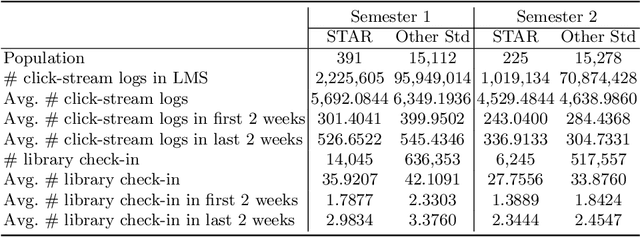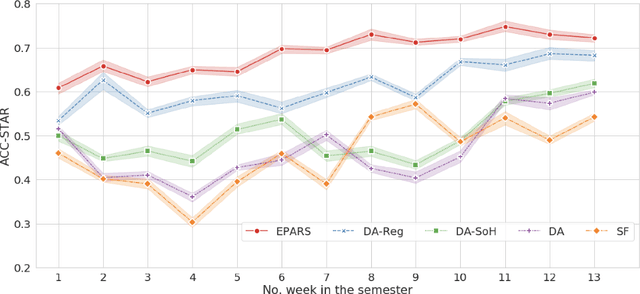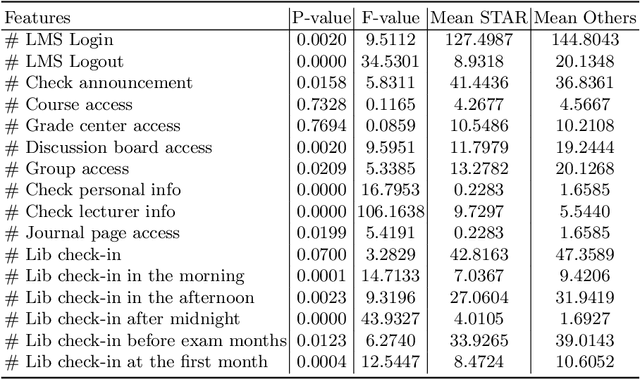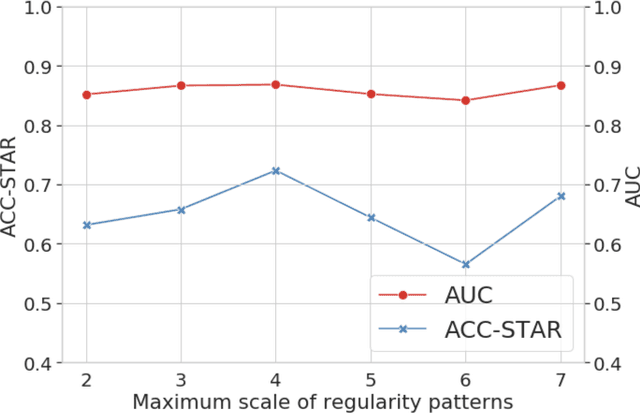EPARS: Early Prediction of At-risk Students with Online and Offline Learning Behaviors
Paper and Code
Jun 06, 2020



Early prediction of students at risk (STAR) is an effective and significant means to provide timely intervention for dropout and suicide. Existing works mostly rely on either online or offline learning behaviors which are not comprehensive enough to capture the whole learning processes and lead to unsatisfying prediction performance. We propose a novel algorithm (EPARS) that could early predict STAR in a semester by modeling online and offline learning behaviors. The online behaviors come from the log of activities when students use the online learning management system. The offline behaviors derive from the check-in records of the library. Our main observations are two folds. Significantly different from good students, STAR barely have regular and clear study routines. We devised a multi-scale bag-of-regularity method to extract the regularity of learning behaviors that is robust to sparse data. Second, friends of STAR are more likely to be at risk. We constructed a co-occurrence network to approximate the underlying social network and encode the social homophily as features through network embedding. To validate the proposed algorithm, extensive experiments have been conducted among an Asian university with 15,503 undergraduate students. The results indicate EPARS outperforms baselines by 14.62% ~ 38.22% in predicting STAR.
 Add to Chrome
Add to Chrome Add to Firefox
Add to Firefox Add to Edge
Add to Edge